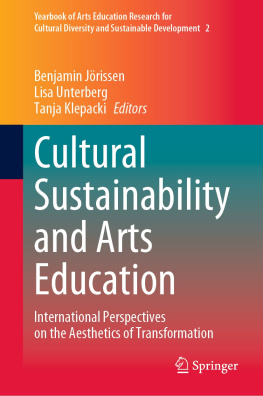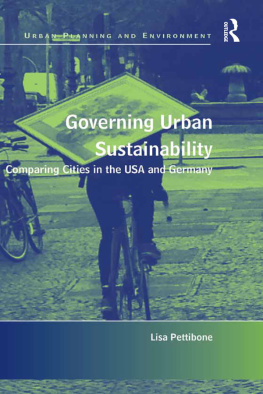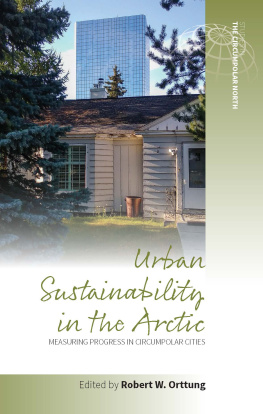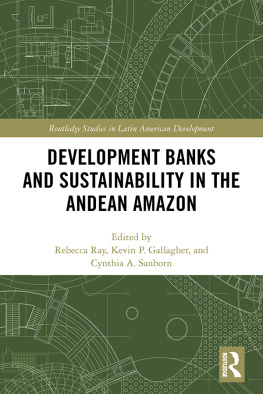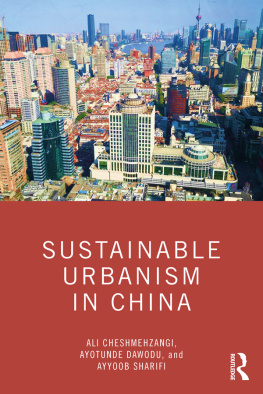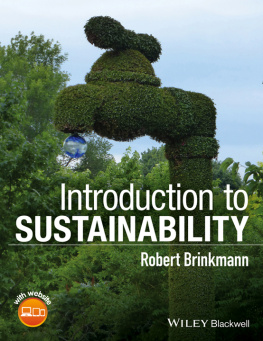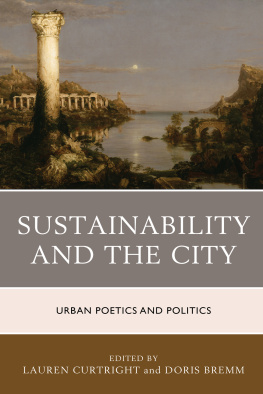Urban Heritage, Development and Sustainability
More than half of the worlds population now live in urban areas and cities provide the setting for contemporary challenges such as population growth, mass tourism and unequal access to socio-economic opportunities. Urban Heritage, Development and Sustainability examines the impact of these issues on urban heritage considering innovative approaches to managing developmental pressures and focusing on how taking an ethical, inclusive and holistic approach to urban planning and heritage conservation may create a stronger basis for the sustainable growth of cities in the future.
This volume is a timely analysis of current theories and practises in urban heritage with particular reference to the conflict between, and potential reconciliation of, conservation and development goals. A global range of case studies detail a number of distinct practical approaches to heritage on international, national and local scales. Chapters reveal the disjunctions between international frameworks and national implementation and assess how internationally agreed concepts can be misused to justify unsustainable practices or to further economic globalisation and political nationalism. The exclusion of many local communities from development policies and the subsequent erosion of their cultural heritage is also discussed, with the collection emphasising the importance of grass roots heritage and exploring more inclusive and culturally responsive conservation strategies.
Contributions from an international group of authors, including practitioners as well as leading academics, deliver a broad and balanced coverage of this topic. Addressing the interests of both urban planners and heritage specialists, Urban Heritage, Development and Sustainability is an important addition to the field that will encourage further discourse.
Sophia Labadi is Senior Lecturer in Heritage Studies and co-Director of the Centre for Heritage at the University of Kent, UK and consultant on heritage for international organizations. She is also co-editor of Heritage and Society. Her latest publication UNESCO, Cultural Heritage, and Outstanding Universal Value was published in 2013.
William Logan is Professor Emeritus in the Cultural Heritage Centre for Asia and the Pacific at Deakin University, Melbourne, Australia. He is a fellow of the Academy of Social Sciences in Australia and was formerly a member of the Heritage Council of Victoria and president of Australia ICOMOS. He is co-editor of the Routledge Key Issues in Cultural Heritage book series.
Key Issues in Cultural Heritage
Series Editors: William Logan and Laurajane Smith
Also in the series:
Heritage and Globalisation
Sophia Labadi and Colin Long
Intangible Heritage
Laurajane Smith and Natsuko Akagawa
Places of Pain and Shame
William Logan and Keir Reeves
Cultural Diversity, Heritage and Human Rights
Michele Langfi eld, William Logan and Mirad Nic Craith
Heritage, Labour and the Working Classes
Laurajane Smith, Paul Shackel and Gary Campbell
The Heritage of War
Martin Gegner and Bart Ziino
Managing Cultural Landscapes
Ken Taylor and Jane L. Lennon
Children, Childhood and Cultural Heritage
Kate Darian-Smith and Carla Pacoe
Heritage and Tourism
Russell Staiff, Robyn Bushell and Steve Watson
The Future of Heritage as Climates Change
David Harvey and Jim Perry
Forthcoming:
Intellectual Property, Cultural Property and Intangible Cultural Heritage
Christoph Antons and William Logan
First published 2016
by Routledge
2 Park Square, Milton Park, Abingdon, Oxon OX14 4RN
and by Routledge
711 Third Avenue, New York, NY 10017
Routledge is an imprint of the Taylor & Francis Group, an informa business
2016 W. Logan and S. Labadi
The right of the editors to be identified as the authors of the editorial material, and of the authors for their individual chapters, has been asserted in accordance with sections 77 and 78 of the Copyright, Designs and Patents Act 1988.
All rights reserved. No part of this book may be reprinted or reproduced or utilised in any form or by any electronic, mechanical, or other means, now known or hereafter invented, including photocopying and recording, or in any information storage or retrieval system, without permission in writing from the publishers.
Trademark notice: Product or corporate names may be trademarks or registered trademarks, and are used only for identifi cation and explanation without intent to infringe.
British Library Cataloguing-in-Publication Data
A catalogue record for this book is available from the British Library
Library of Congress Cataloging-in-Publication Data
Urban heritage, development and sustainability: international
frameworks, national and local governance/edited by Sophia Labadi
and William Logan.
pages cm. (Key issues in cultural heritage)
Includes index.
1. Cultural propertyProtection. 2. Historic preservation
International cooperation. 3. City planning. 4. UrbanizationSocial
aspects. 5. Sustainable urban development. I. Labadi, Sophia, editor.
CC135.U73 2015
363.69dc23
2015014371
ISBN: 978-1-138-84573-2 (hbk)
ISBN: 978-1-138-84575-6 (pbk)
ISBN: 978-1-315-72801-8 (ebk)
Typeset in Times New Roman and Gill Sans
by Sunrise Setting Ltd, Paignton, UK
Contents
SOPHIA LABADI AND WILLIAM LOGAN
KEARRIN SIMS AND TIM WINTER
ALBINO JOPELA
BIANCA MARIA NARDELLA AND ELISABETE CIDRE
STACEY R. JESSIMAN
KRISTAL BUCKLEY, STEVEN COOKE AND SUSAN FAYAD
JANET BLAKE
SOPHIA LABADI
ROB PICKARD
CELIA MARTNEZ YEZ
LEE HO YIN AND LYNNE D. DISTEFANO
MATTHEW J. HILL AND MAKI TANAKA
EDUARDO ROJAS
WILLIAM LOGAN
PHAM THI THANH HUONG
YAMINI NARAYANAN
The interdisciplinary field of Heritage Studies is now well established in many parts of the world. It differs from earlier scholarly and professional activities that focused narrowly on the architectural or archaeological preservation of monuments and sites. Such activities remain important, especially as modernisation and globalisation lead to new developments that threaten natural environments, archaeological sites, traditional buildings and arts and crafts. But they are subsumed within the new field that sees heritage as a social and political construct encompassing all those places, artefacts and cultural expressions inherited from the past which, because they are seen to reflect and validate our identity as nations, communities, families and even individuals, are worthy of some form of respect and protection.
Heritage results from a selection process, often government-initiated and supported by official regulation; it is not the same as history, although this, too, has its own elements of selectivity. Heritage can be used in positive ways to give a sense of community to disparate groups and individuals or to create jobs on the basis of cultural tourism. It can be actively used by governments and communities to foster respect for cultural and social diversity and to challenge prejudice and misrecognition. But it can also be used by governments in less benign ways, to reshape public attitudes in line with undemocratic political agendas or even to rally people against their neighbours in civil and international wars, ethnic cleansing and genocide. In this way there is a real connection between heritage and human rights.



